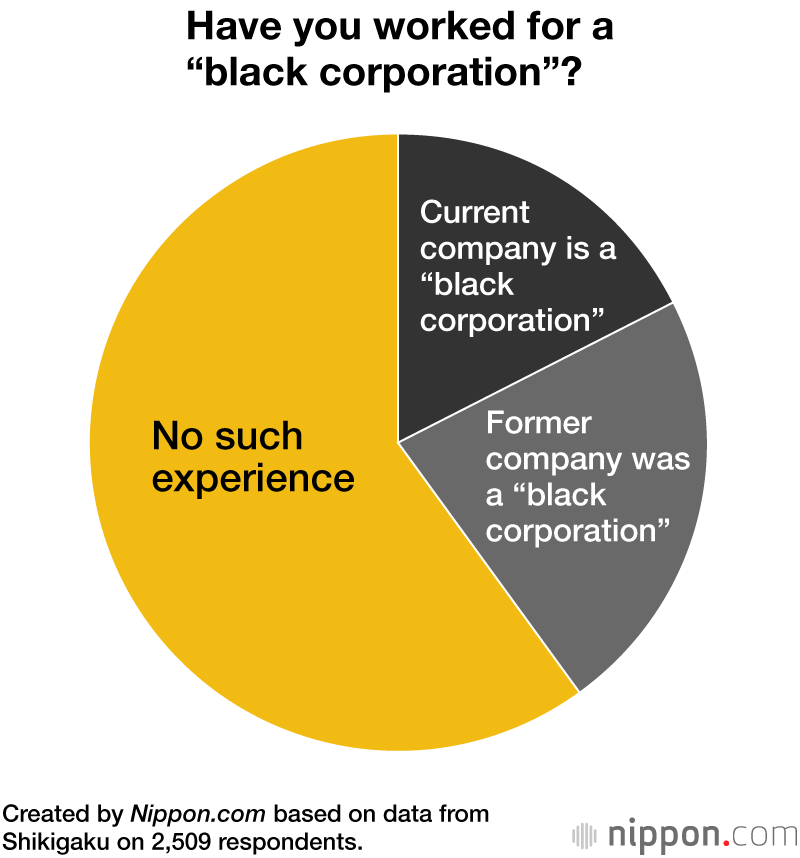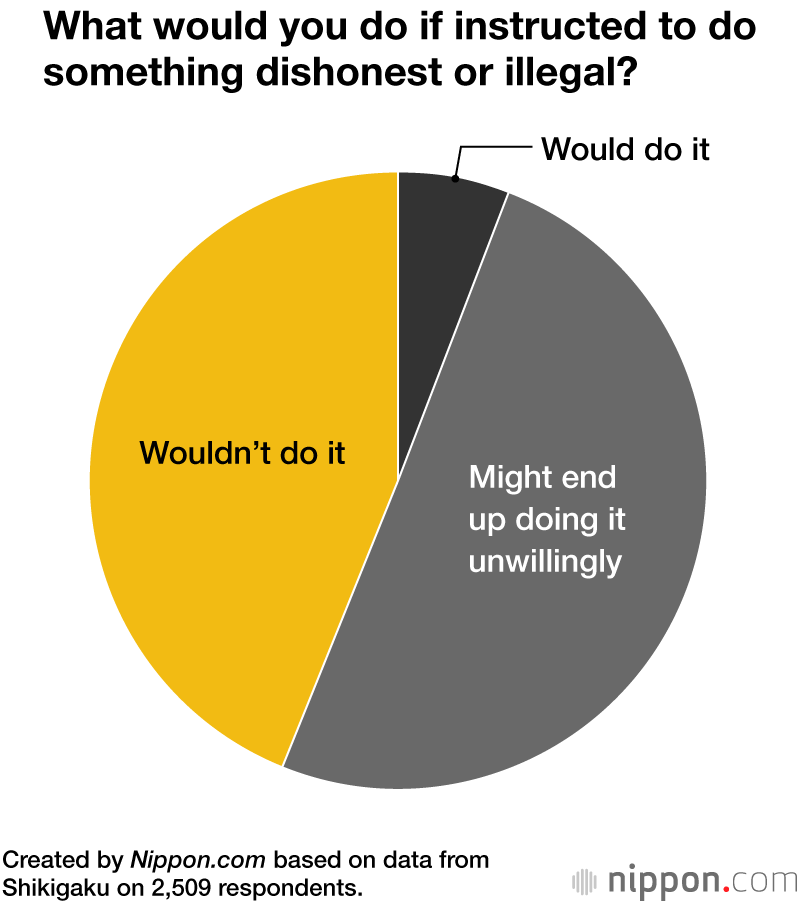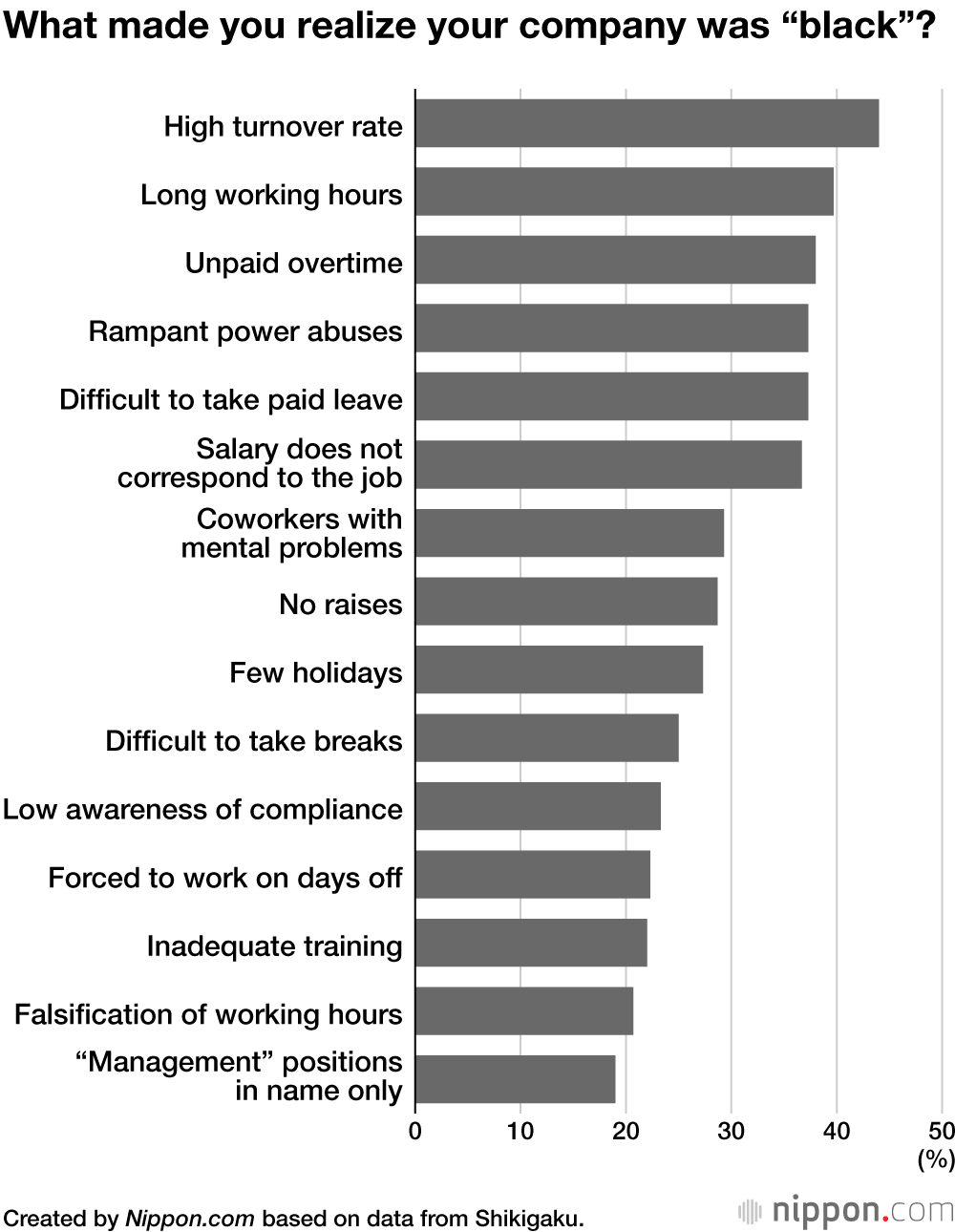
“Black Corporations” Still Common in Japan
Work Economy Society Health- English
- 日本語
- 简体字
- 繁體字
- Français
- Español
- العربية
- Русский
Despite the rapid rise in awareness of issues related to workplace reforms and corporate compliance, many burakku kigyō (literally “black corporations”) still remain in Japan that force their employees to work long hours and set excessive quotas for them to fulfill.
A nationwide survey of company employees aged from 20 to 59 conducted by Shikigaku, a Tokyo-based management consulting services company, found that 38.6% of the respondents say they have worked for or are currently employed by a “black corporation.”
When asked whether they would follow instructions from their companies to engage in dishonest or illegal activities, 6.1% said that they would, while 50.2% said that they might if they had no other choice. This result shows that some employees are complicit in the unsavory activities of “black corporations” even if they are not proactive participants.
Among those who have worked for a “black corporation,” 79% said they did not ask the company for advice concerning dishonest or illegal acts, which suggests that employees are resigned to the fact that such discussions are pointless.
The survey asked those with experience working for a “black corporation” what aspects of the job made them realize that their company fell under this category. The most-cited reason was the “high turnover rate” (mentioned by 44.0%), followed by “long working hours” (39.7%) and “unpaid overtime” (38.0%), reflecting the importance of issues related to the time spent on the job. Respondents noted some of the illegal practices they witnessed, including companies that nominally complied with labor laws by categorizing half of overtime as “taking a break” or cases where employees worked around 100 hours of overtime a month but were not paid in full because management said “it was too much.”
(Translated from Japanese. Banner photo © Pixta.)


